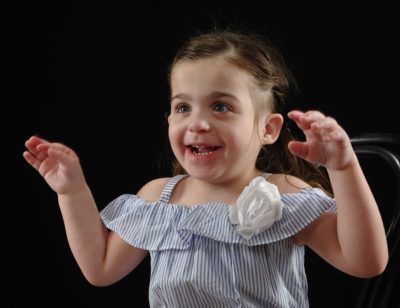Retina Foundation Helps Avery
Avery is a happy and affectionate little girl who has been amazingly brave for a total of twelve surgical procedures. Avery has a syndrome known as CHARGE which has led to a myriad of issues, including poor eye-hand coordination, poor depth perception, lack of balance, and difficulty with simple tasks, such as brushing her hair.
Avery has two loving parents, a full-time care provider, a physical therapist, an occupational therapist, a speech therapist, a vision teacher, and a dozen doctors to help her overcome some of the challenges she faces. Avery’s life remains very active as she enjoys playing outside. Avery has been diagnosed with coloboma of optic nerve, nearsightedness, farsightedness, and lazy eye. Her current eyesight allows her to maneuver both the swimming pool and the great outdoors, but her vision needs to be monitored as it develops naturally over time.
At six months of age, Avery’s local eye doctor referred her to the Retina Foundation of the Southwest, one of the only sites in the nation that evaluates the vision of special needs children.
Avery’s vision assessments, which are provided by the Retina Foundation of the Southwest free of charge, allow her school to adjust her Individualized Education Program (IEP). They also help Avery’s therapists keep track of any changes in her vision, so they can try new therapies more aligned with her visual abilities.
Avery’s parents know her vision may change throughout her life, so they will continue bringing her to the Retina Foundation every six months. Our evaluations, and experienced and caring staff, will ensure that Avery’s parents and therapists have the knowledge they need for Avery to optimize learning and growing.

Related Articles
Three Patents Awarded for Retina Foundation’s Two-Layer Ocular Implant in Japan, Europe and the United States Recently@Retina Newsletter December 2023 Anonymous One Million Dollar Gift Given to Retina Foundation for AMD Research The Edward C. Fogg, III and Lisbeth A. Fogg Charitable Trust grants Retina Foundation $133,000 for Genetic Eye Disease Recently@Retina Newsletter August 2024